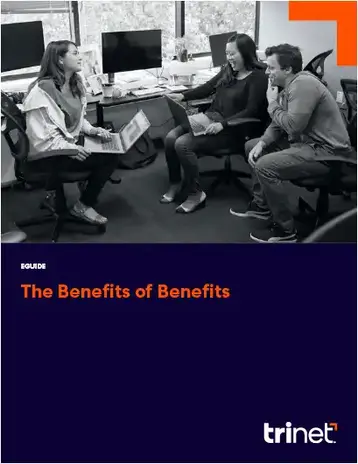
The continuation of the Consolidated Omnibus Budget Reconciliation Act (COBRA) gives people who lose their health benefits the opportunity to continue them for a limited time. When does COBRA coverage start, though? The loss of health insurance is what triggers COBRA. That's true whether it is voluntary or involuntary separation or even due to gross misconduct from an employer.
COBRA eligibility can also result from hour reduction, job transition, or divorce. Other qualifying events include becoming eligible for Medicare and the death of a covered employee. A qualified beneficiary, like a spouse, has the right to COBRA benefits if their loved one dies and they lose health insurance coverage. This article will provide details about this critical employment law and, specifically, cover the timeline of COBRA coverage.
COBRA coverage timeline
An employee eligible for COBRA insurance must opt for it within 60 days of their employer-sponsored insurance termination date. The coverage starts the day the previous coverage ends. The employer’s COBRA administrator is responsible for sending out an election notice with information about deadlines for enrollment. For example, if employment ends on April 25, COBRA will pick up where the group health plan ends. If it ends immediately, COBRA eligibility begins on April 26. If the benefits stop at the end of the month, as with many employers, COBRA coverage begins May 1. That employee has 60 days from their previous health coverage termination date to enroll.
Continuation coverage
If the employee enrolls during the 60-day period, then there’s no lapse in coverage because COBRA applies retroactively to the date the employee loses health insurance. So, for example, if employer-provided coverage ends on June 30, COBRA picks up on July 1.
Long-term COBRA continuation coverage
By design, COBRA is short-term. On average, a former employee can stay on COBRA for between 18 to 36 months. The coverage can last for an extended time if necessary. In that case, the covered employee may have to pay the full group plan premium plus a 2% administration fee. So, if the insurance is $950 per month, the cost of the premium payments could become $969. The administration cost is up to the insurance company. The high cost of continued payment through COBRA can be a consideration for many. Instead of continuing COBRA at full cost, a plan administrator might suggest looking for an insurance plan on the marketplace. The group health care plans there might be less expensive than continuing COBRA.
Enrolling in the marketplace
Loss of health benefits is a qualifying event that allows someone to get group health insurance via Healthcare.gov or the state insurance marketplace. They might use tax credits to lower the monthly premium. Employees who lose health coverage can also enroll in COBRA and apply for insurance via the marketplace during open enrollment. Open enrollment due dates can vary from year to year. Typically, they run from November 1 to December 15 for coverage that starts January 1 of the following year. It is also possible to enroll from December 16 to January 15 of the following year. The insurance will start on February 1, however. With a qualifying event, like job loss, they can enroll after January 15. To find more helpful information about health care benefits and how to maximize them, visit TriNet daily.
Helpful Links:
U.S. Department of Labor: COBRA Continuation Coverage
Healthcare.gov: A quick guide to the Health Insurance Marketplace
U.S. Department of Labor: An Employee's Guide to Health Benefits Under COBRA
This communication is for informational purposes only; it is not legal, tax or accounting advice; and is not an offer to sell, buy or procure insurance.
This post may contain hyperlinks to websites operated by parties other than TriNet. Such hyperlinks are provided for reference only. TriNet does not control such web sites and is not responsible for their content. Inclusion of such hyperlinks on TriNet.com does not necessarily imply any endorsement of the material on such websites or association with their operators.






